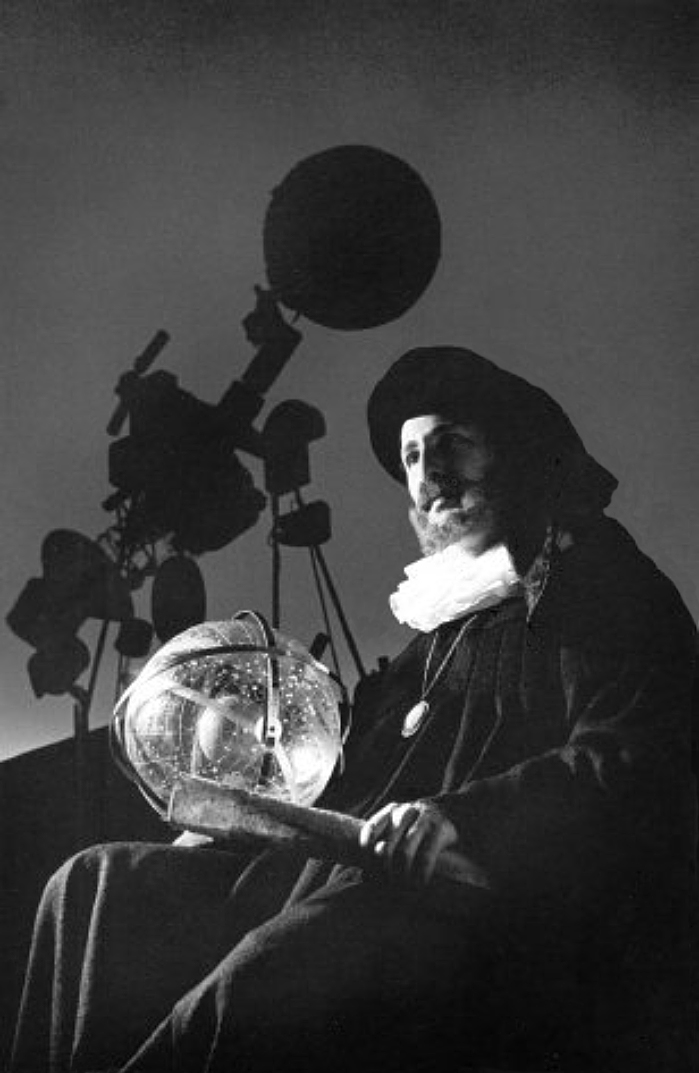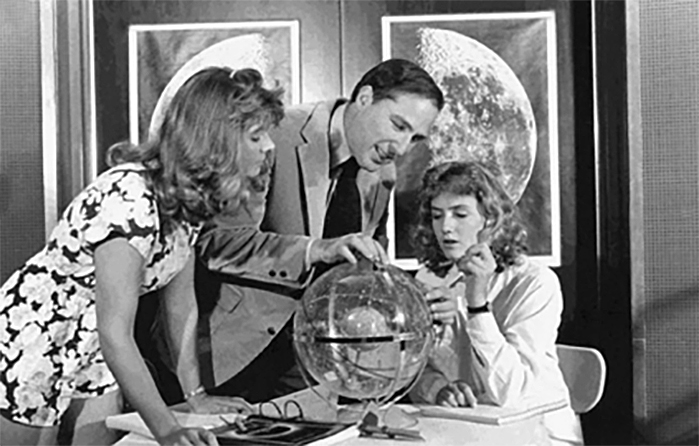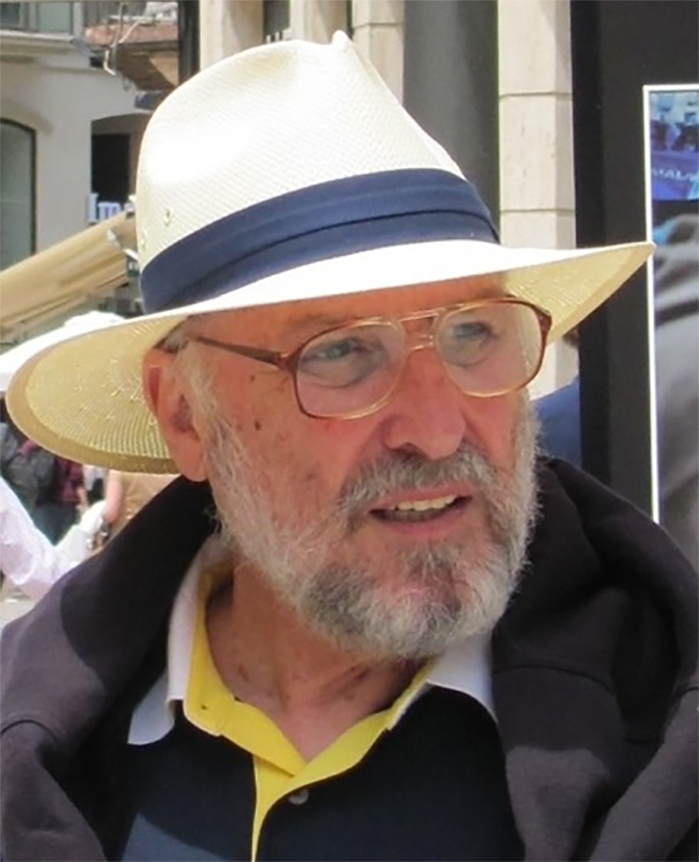Michael Chriss
CSM astronomer who often portrayed Galileo left his mark on campus life
A College of San Mateo Renaissance man enriched student life not only in his primary field of astronomy but also in theater arts, honors studies, baseball, global intellectual exchange and, not least, the surprising fact that CSM is not precisely on Pacific time.
Professor Michael Chriss taught in CSM’s astronomy program and the humanities at College of San Mateo for 27 years. An amateur actor and theater buff, he is probably best remembered around town for lecturing on the solar system as Galileo, the Renaissance scientist whose insistence that the Earth revolves around the sun got him in trouble with religious authorities. Chriss spoke as Galileo for campus classes, for CSM’s annual Family Science Day, and for the free monthly star talks launched in 1976 at the CSM planetarium.
But Chriss, with his wide range of interests, enriched CSM life in other ways as well.
He founded CSM’s Honors Program in 1986 to enrich the college careers of capable students willing to do in-depth work in at least one subject. The program was launched with 52 students taking one-unit honors seminars that piggybacked on regular courses such as linear algebra and biology. Criss vowed to then-CSM president Lois Callahan that the program would cost no extra money. So he persuaded instructors to teach these honors seminars for no extra pay.
One of Chriss’s students built CSM’s first sundial, funded as a gift from the Class of 1985 and installed five years later.
Chriss maintained lifelong intellectual and cultural contacts in the Soviet Union. He was a visiting scholar at an Odessa teaching institute, which reciprocated by sending an education scholar to talk with faculty at CSM.
He located Soviet athletes who were devoted to what was, to them, the mysterious and arcane sport of baseball. In March 1991, he brought a Soviet club baseball team to play the CSM Bulldogs. Bulldog baseball coach John Noce said, diplomatically, “They had a presence. They didn’t catch the ball, but they looked like ballplayers.”
Chriss even officiated at his colleague and successor Prof. Mohsen Janatpour’s wedding to his wife, Lynn, in 1991.
“He said he officiated three weddings – mine was the only one that survived,” Janatpour said.
Moving to Tucson, Chriss taught “The Philosophy and History of Astronomical Thought” at the University of Arizona. He continues to teach at the university’s Arizona Senior Academy.
Some of his CSM innovations grew in popularity and continue today, while other improvements Chriss long sought were not realized until after his retirement in 1992.
The latter include CSM’s observatory and its Integrated Science Center – with a new sundial designed by Janatpour, an accomplished artist, on the parking-lot side of the building.
On sunny days, the sundial indicates a time eight minutes earlier than Pacific Standard Time. This is because the dial shows Local Apparent Time – the sun’s position relative to Earth’s surface in San Mateo. For clarity’s sake, each time zone observes the Local Apparent Time in the geographical center of the zone. For us in the Pacific time zone, that equates to the Local Apparent Time near Sacramento.
Today’s CSM Honors Project expands on Chriss’s model and is being elevated to a full-fledged learning community to better help students excel. Participants still pair a “foundation” course in math/science or humanities with a corresponding honors seminar and then develop an individual research project. Students who complete two of these pairings and other requirements are recognized as CSM Honors Scholars.
In spring 2023, CSM will debut its Michael Chriss Astronomy Awards, coordinated by Janatpour and the CSM Foundation. The awards are open to all students who are or have enrolled in an astronomy course at the college. In keeping with Chriss’s devotion to both science and the humanities, applicants may submit either an original observational astronomy research project at the CSM Observatory or a research paper on astronomy and history, the arts, and culture.




